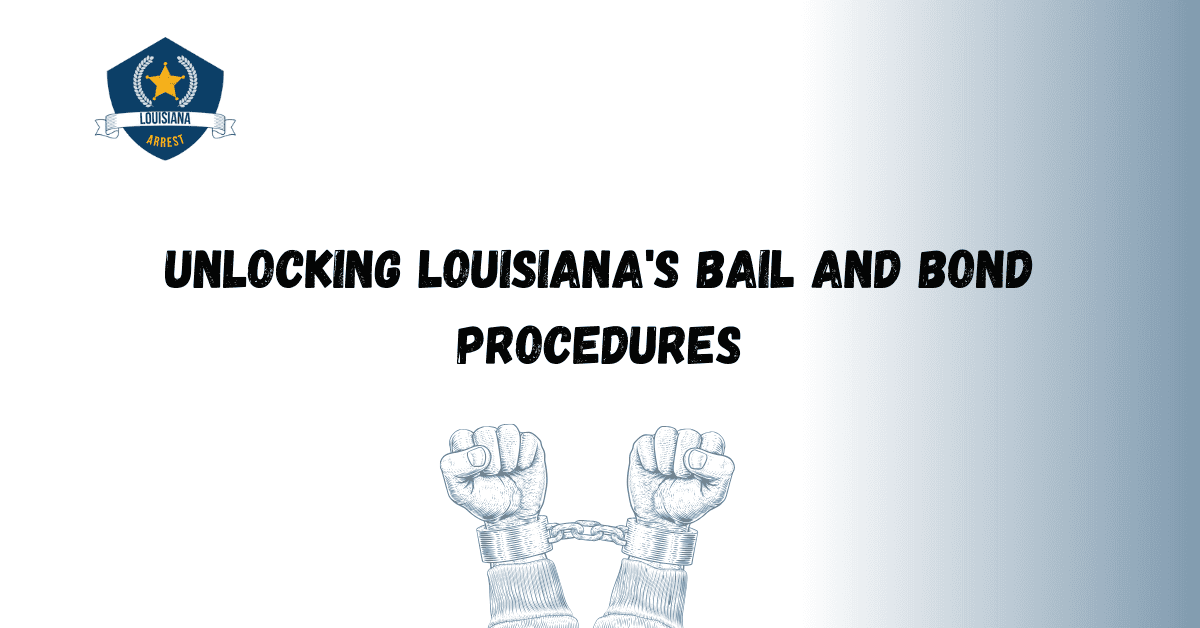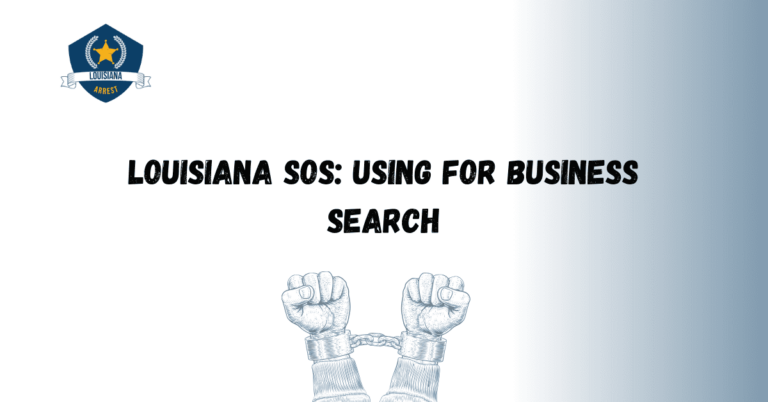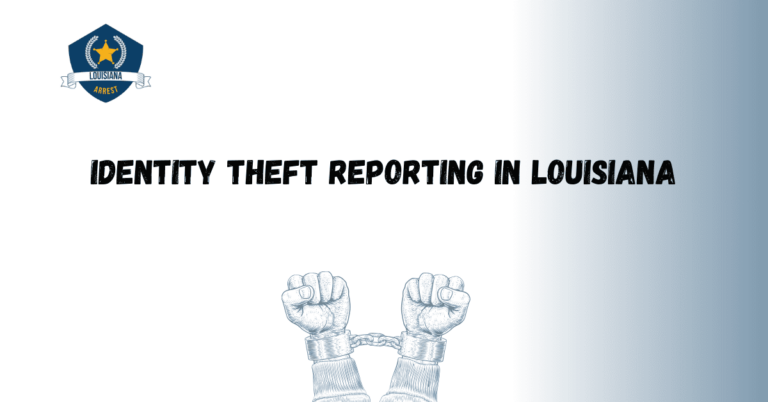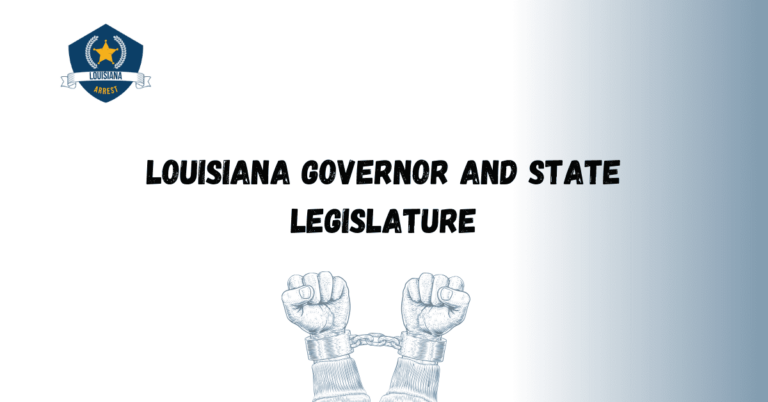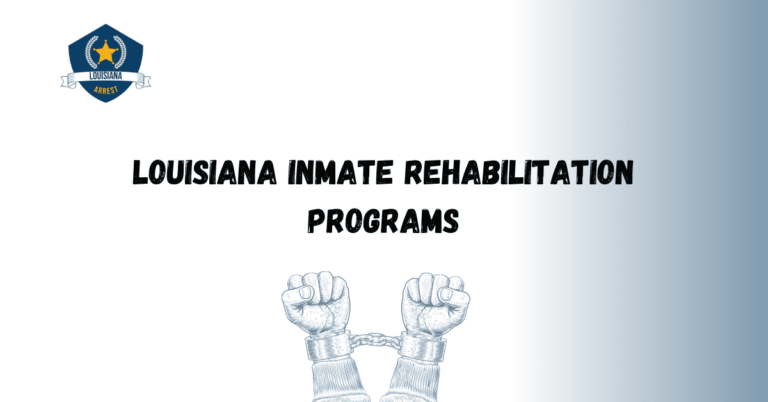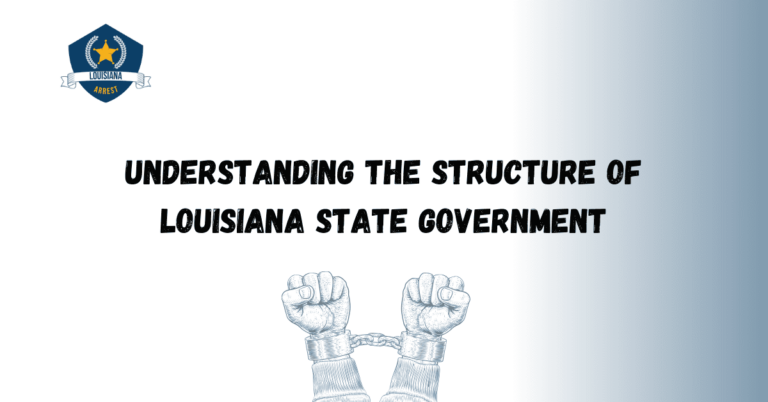Unlocking Louisiana’s Bail and Bond Procedures
Unlocking Louisiana’s Bail and Bond Procedures takes you on a journey through the intricate web of the state’s legal system, shedding light on the often confusing and misunderstood world of bail and bond. In this comprehensive guide, we delve into the processes and regulations that govern how individuals gain their freedom while awaiting trial.
From the moment someone is arrested to the intricacies of posting bail and navigating the bond process, this guide provides a step-by-step breakdown of the procedures involved. Whether you’re a concerned citizen, a legal professional, or simply curious about the inner workings of the justice system, this resource aims to demystify the complex world of bail and bond in Louisiana.
The Arrest Process
Understanding the first steps after an arrest
After someone is arrested in Louisiana, they are taken into custody by law enforcement. This initial step marks the beginning of their journey through the legal system. In this section, we will explore the arrest process in detail, shedding light on what happens to an individual after they are apprehended.
Booking and Processing
The necessary procedures following an arrest
Once a person is arrested, they are typically brought to a local police station or county jail for booking and processing. During this stage, their personal information is recorded, including their name, date of birth, and physical description. In addition, fingerprints and photographs may be taken for identification purposes. This section will delve into the intricacies of the booking and processing phase, providing a comprehensive understanding of what individuals go through.
The Role of Bail
Exploring the concept of bail and its significance
One of the key aspects of the legal system is the concept of bail. Bail is a monetary amount set by the court that allows individuals to secure their release from custody while awaiting trial. This section will delve into the purpose of bail, the factors considered when setting bail amounts, and the different types of bail that can be utilized. By understanding the role of bail, individuals can navigate the process more effectively.
Posting Bail
Step-by-step guide to posting bail in Louisiana
When an individual or their loved ones decide to post bail, there are specific steps that need to be followed. From contacting a bail bondsman to gathering the necessary documentation, this section will provide a detailed breakdown of the process. Additionally, we will explore the various options available for posting bail and discuss the potential implications of each choice.
The Bond Process
Navigating the complexities of the bond process
In some cases, individuals may not have the means to post bail directly. The bond process offers an alternative solution, allowing individuals to secure their release by paying a percentage of the bail amount to a bond company. This section will provide an in-depth explanation of the bond process, including the role of bondsmen, the financial obligations involved, and the potential risks associated with using a bond company.
Understanding Your Rights
Empowering individuals with knowledge of their rights
Throughout the journey of bail and bond, it is crucial for individuals to understand their rights. This section will outline the rights granted to individuals who are arrested, as well as their rights during the bail and bond process. By understanding these rights, individuals can make informed decisions and protect themselves throughout their interaction with the legal system.
FAQs
What is bail?
Bail is a legal process that allows an individual who has been arrested to secure their release from custody while awaiting trial. It involves providing a certain amount of money or property to the court as a guarantee that the person will appear for their scheduled court dates.
How does bail work in Louisiana?
In Louisiana, bail is set by the court based on various factors, including the severity of the crime, the defendant’s criminal history, and the likelihood of them appearing for trial. Once bail is determined, the defendant or their loved ones can pay the bail amount to secure their release.
What is the difference between bail and bond?
While bail refers to the amount of money or property that needs to be paid to secure release, a bond is a financial agreement provided by a bail bondsman. In Louisiana, if the bail amount is too high for the defendant or their loved ones to pay, they can seek the services of a bail bondsman who will post the bond on their behalf.
What happens if a defendant fails to appear in court after posting bail?
If a defendant fails to appear in court after posting bail, a warrant may be issued for their arrest, and the bail amount may be forfeited. The court may also impose additional penalties or charges for the failure to appear.
Can bail be refunded if the defendant is found not guilty?
If the defendant is found not guilty or the charges against them are dismissed, the bail amount can usually be refunded. However, administrative fees or other costs may be deducted from the refunded amount.
Can bail be reduced or increased after it has been set?
In certain circumstances, bail can be reduced or increased after it has been initially set. This can happen if new information or evidence comes to light that affects the court’s assessment of the defendant’s flight risk or the severity of the charges.
Unlocking Louisiana’s Bail and Bond Procedures takes you on a journey through the intricate web of the state’s legal system, shedding light on the often confusing and misunderstood world of bail and bond. In this comprehensive guide, we delve into the processes and regulations that govern how individuals gain their freedom while awaiting trial.
From the moment someone is arrested to the intricacies of posting bail and navigating the bond process, this guide provides a step-by-step breakdown of the procedures involved. Whether you’re a concerned citizen, a legal professional, or simply curious about the inner workings of the justice system, this resource aims to demystify the complex world of bail and bond in Louisiana.

